Remember the exciting early 2000’s when at each year there seemed to be something weird and wonderful happening to cellphones? From green & black displays with pixelart to colorful wallpapers, from classic ringtones to MIDI and from snake I to snake II.
The times when taking photos and being able to send them to your friends was an exception, not the rule? When sharing a photo required being within the range of bluetooth – or paying for the MMS fees.
Excitement of receiving a blurry photo of a birthday cake from a party you couldn’t attend to because you were out of country. Showing it to your family, quickly snapping a photo of a foreign city street and sending it back in return. Bragging to your friend “My phone’s camera even has a zoom feature!”

Well I am here to tell you that you can relive all the nostalgia (or pixelated horrors, however you wish to think of it) through this post – and by making a fun challenge to yourself after it – and perhaps even learn a bit or two about camera phone history!
Yeah. I still sometimes shoot with these. And it’s fun!
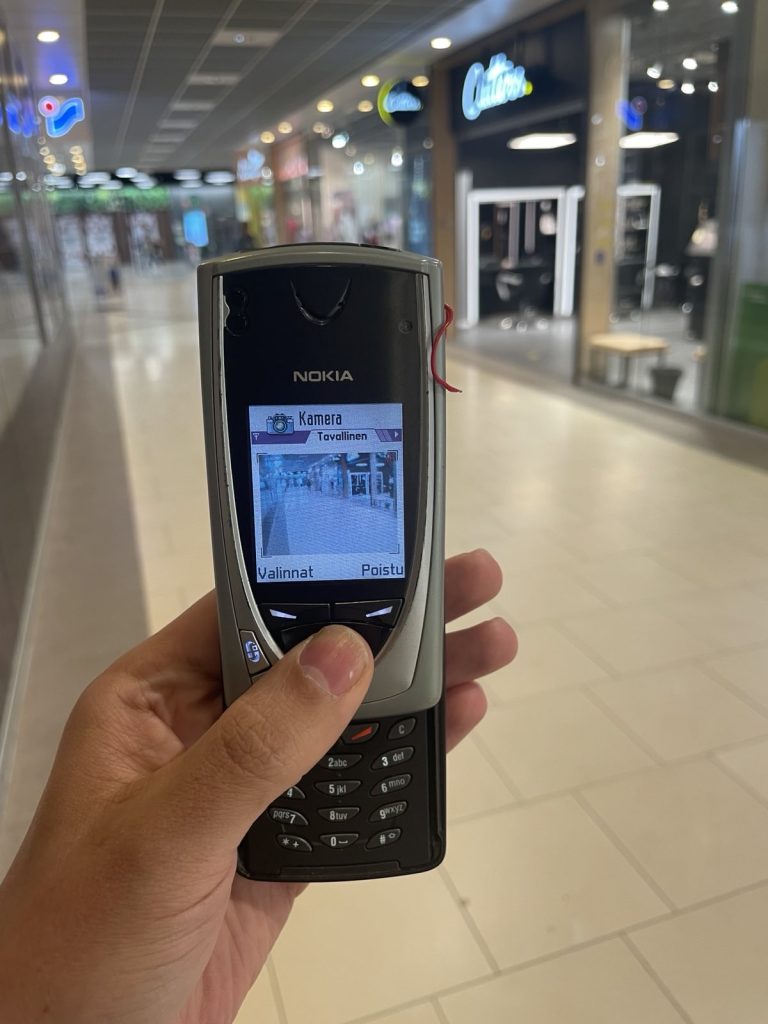
Meeping from the Cold North, it is after all also my national duty to remind you all that it was none other than our own pride and joy who first brought a camera onto phone in both European (Nokia 7650) and North American (Nokia 3600) markets. And it was a hit.
Nokia 7650 is an magnificent piece of tech. Large display, running a brand new operating system – Symbian s60 – and featuring an amazingly bad 3.5mm VGA (0.3mpix) camera with f/2.8 capable of both taking photos and video. And if that’s not enough, it even got the connectivity so you could GPRS email your photos to your workmates to make them jealous of your holiday in almost real time.
Back in 2002!
7650 was/is however limited to 3.4-ish Mb onboard memory which most often proved sufficient for the above mentioned usecase of taking some quick snaps of the blue ocean, but fills up really fast when you have a cat at home.
Combine the lack of memory card with the fact that bluetooth is not backwards compatible enough to allow for straight-on file transfer to modern devices, you can be in for a bit of trouble trying to extract your beloved pictures out from the 7650 in modern times.
After all, it was still a phone. Not yet a camera.
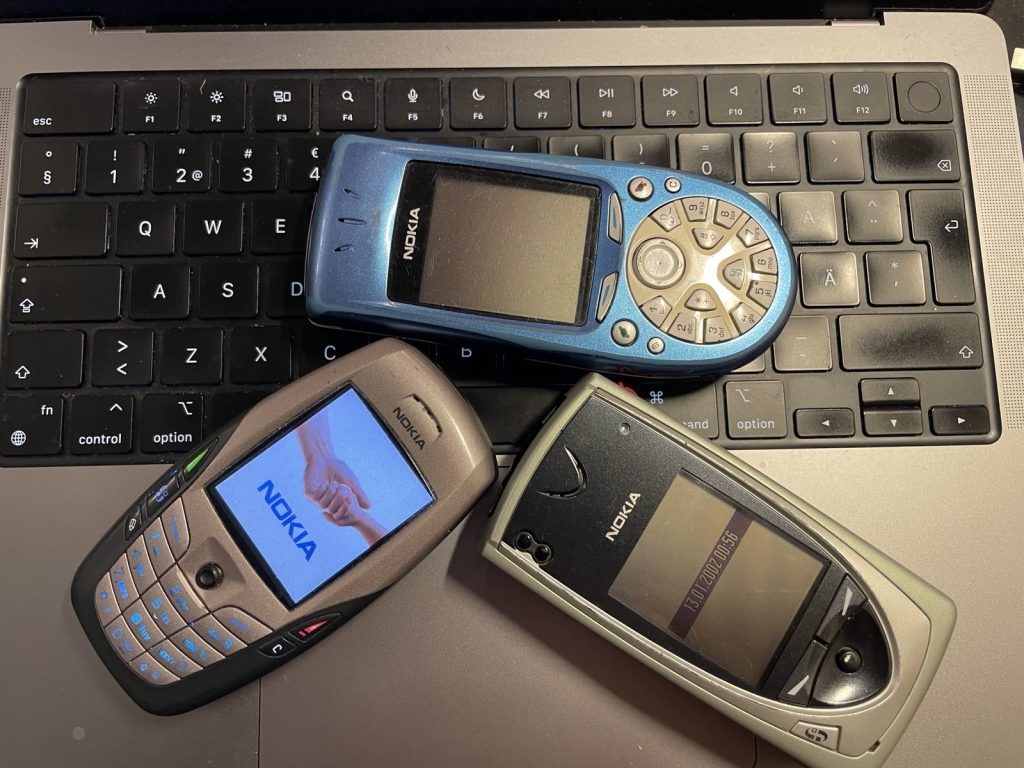
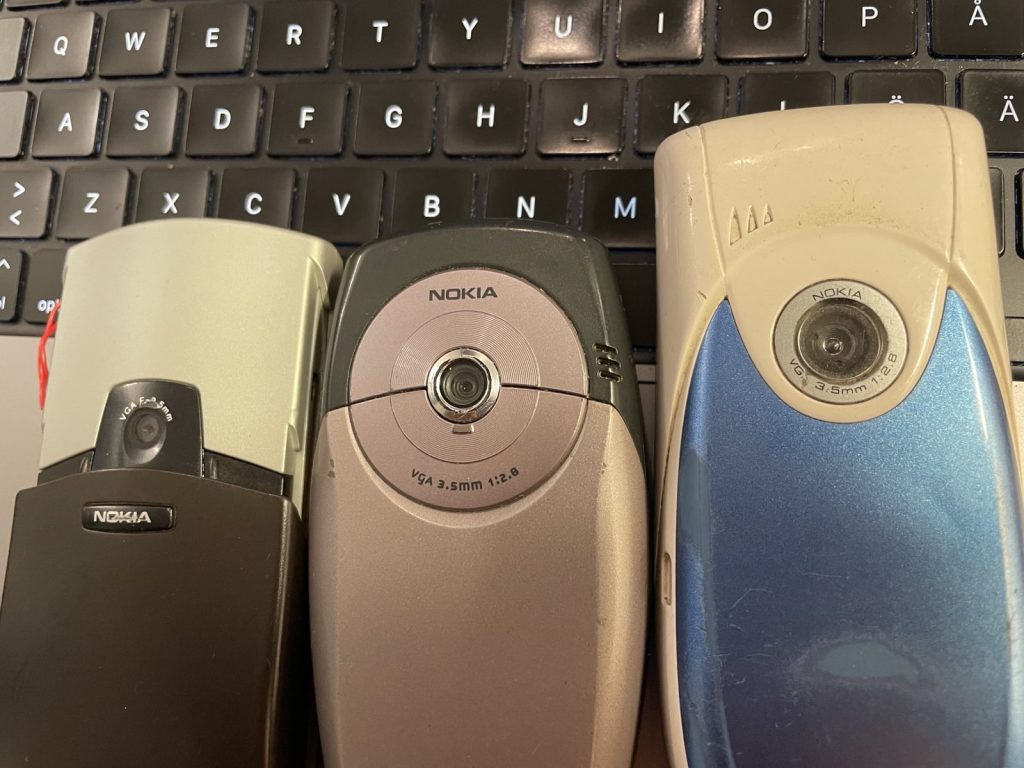
The same VGA camera module can also be found from the next year’s 3650 (Quickly patched to 3660 when people couldn’t stand the unorthodox keyboard) as well as from 6600, all released during 2002-2003.
Sharing the same camera, the trio also shares mostly the same features with one significant exception. Like mentioned above, the 7650 does not have a memory card slot whereas both the 3600 and 6600 series do feature a (non-hotswappable) MMC card. They even got Java support for 3rd party software to be installed.
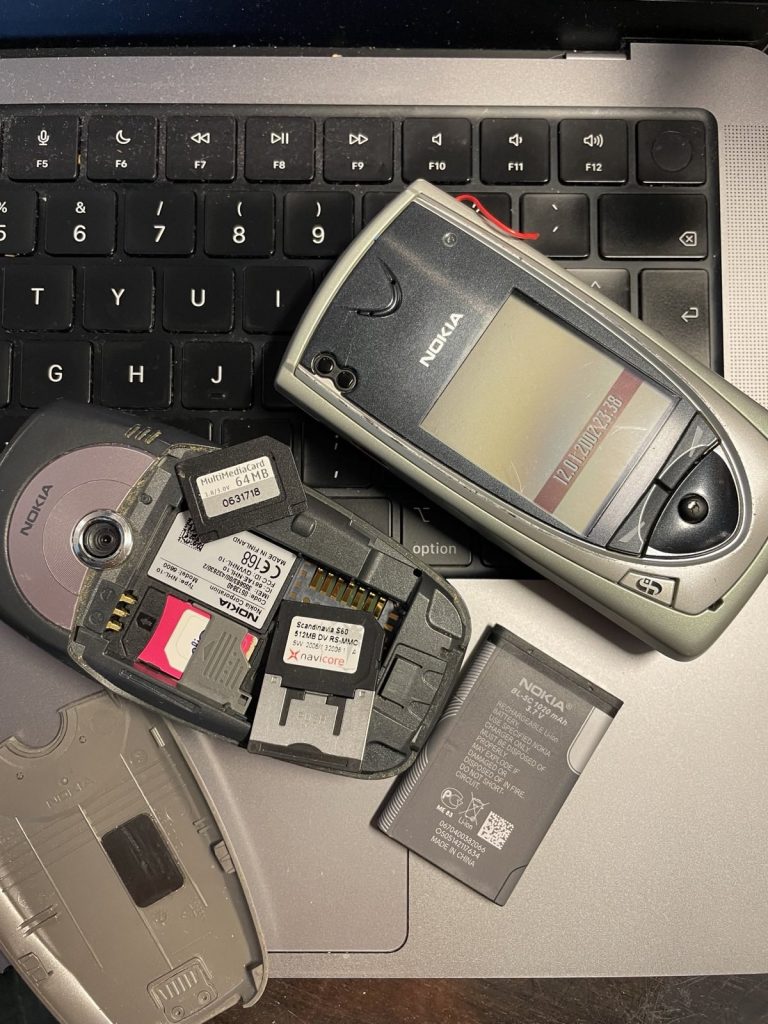
Soon after the first ones, the race was on. Motorola, Sony Ericsson and others quickly came to the markets with their models and barely two years after the launch of the camera phone, Nokia was already pushing out new phones with 1.3Mpix sensors bringing a noticable increase to picture quality and usability; especially indoors, in dim lighting and night.
In addition to the new sensor, the 6630 – launched at 2004 – brought other conveniences for photographers such as MMC-slot on its side doing away with the need to remove the battery to switch cards and it even came preinstalled with software for photo remote printing and video editing. This time, the aim was clear: the phone is to become a camera. For real.
And yet more innovation followed. Just about 6 months after Nokia came out with the 6630 – their first serious attempt at a camera phone, 6680 showcased a VGA camera on its front in addition to the 1.3Mpix main; marketed for video calls but essentially – with similar models from other manufacturers* – planting the seeds for the whole selfie culture to blossom years later.
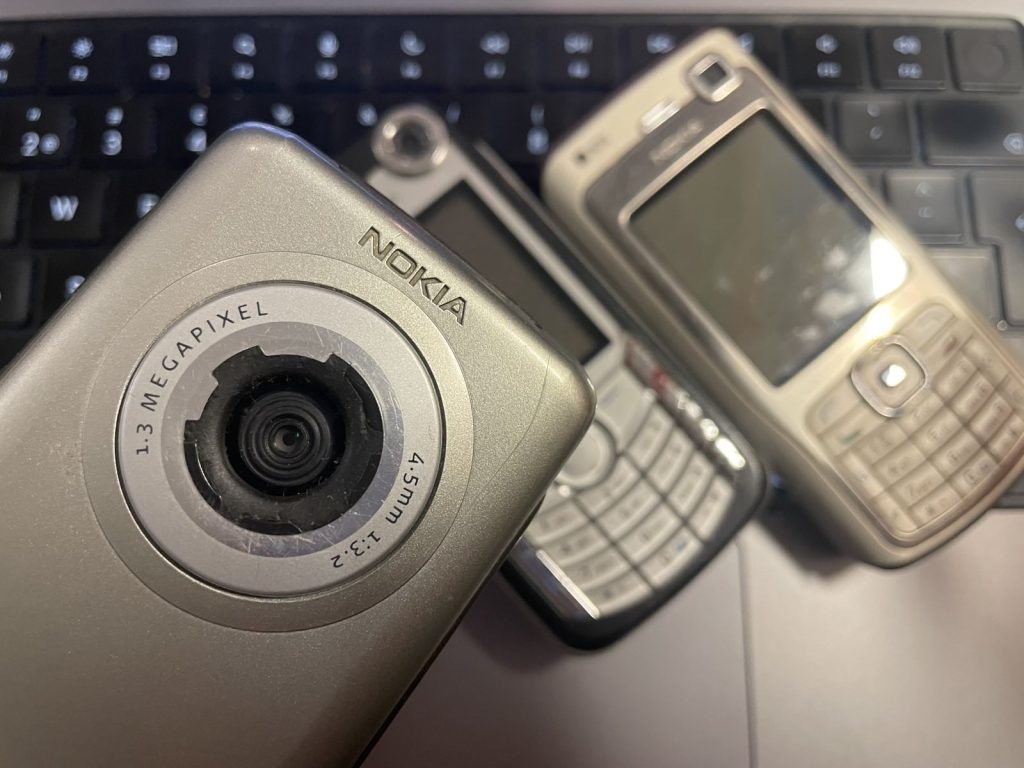

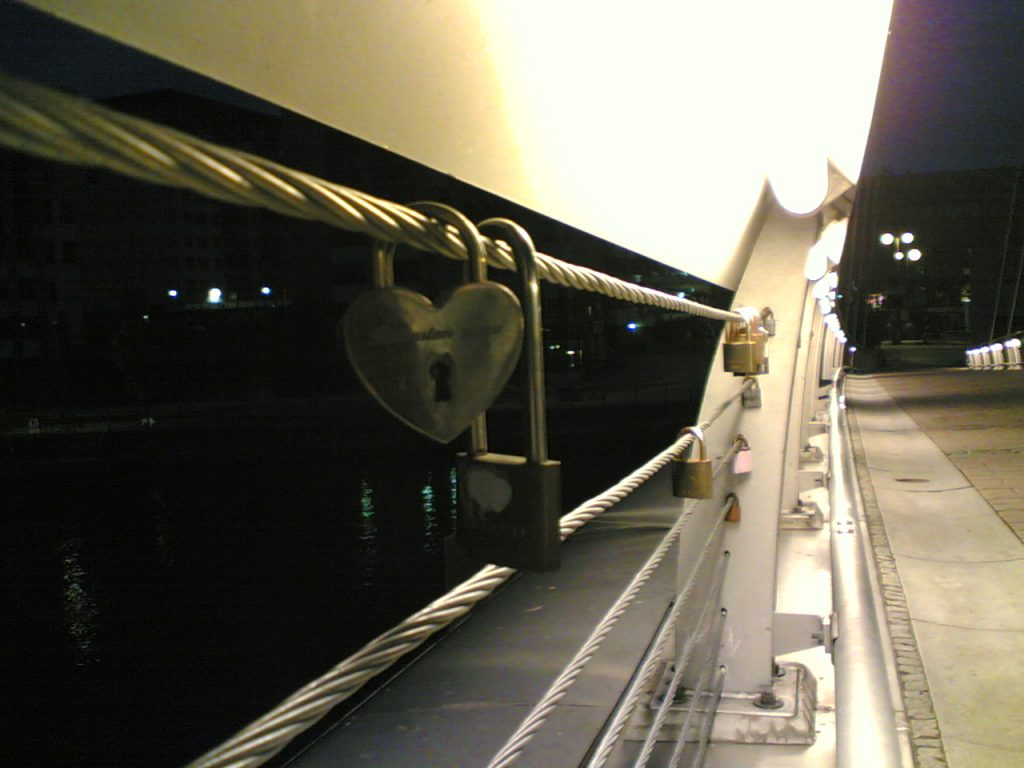

From 6680 to N70 in three months. Camera got a bump again from 1.3 to 2.0Mpix, an integrated flash and a whole new lineup of N-series “multimedia phones” was born. The software now allowed for selecting white balance, scene, tones and so on. With the upgrades, the N70 was finally capable of challenging the cheapest point-and-shoots of the early 2000’s with ease.
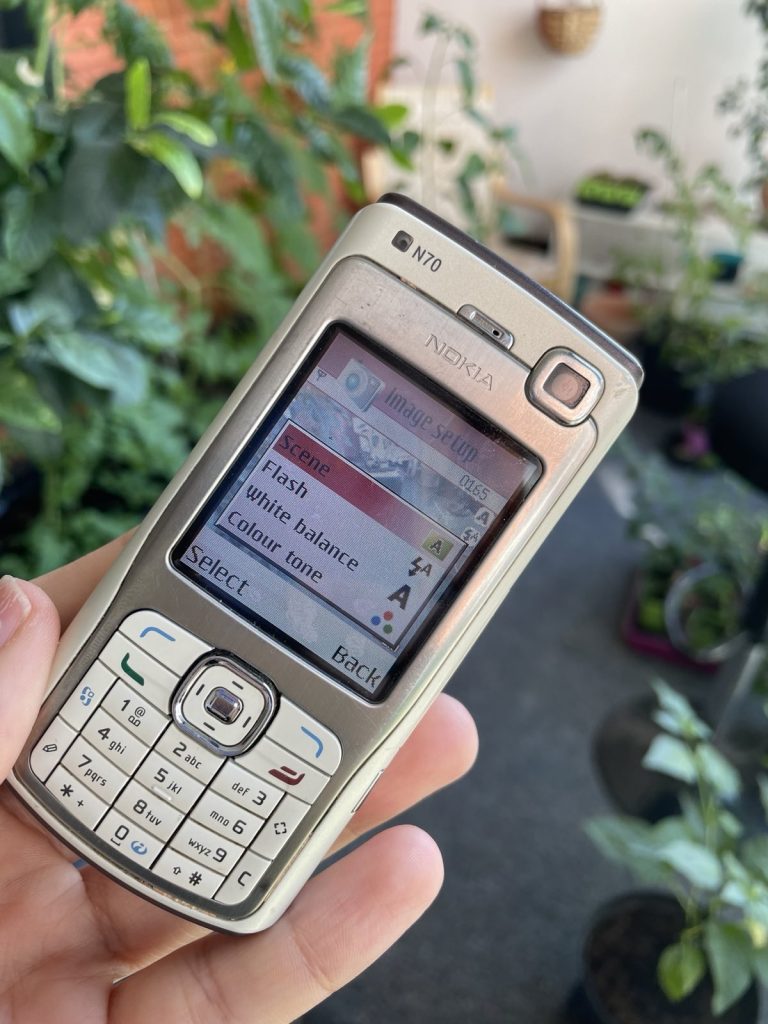

Nokia had finally done it. Merely three years after the launch of the first attempt at 2002, the N70 was truly a camera and a phone.
And shortly after 2005, it got rapidly out of hand for real.
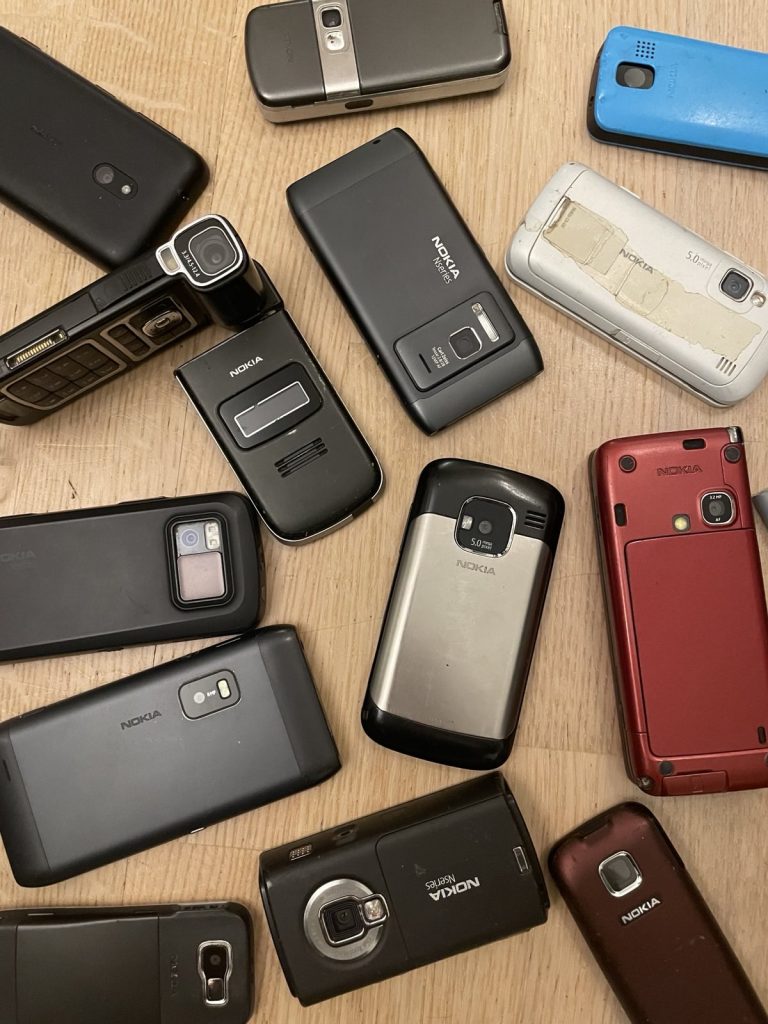
From the largest to the smallest. The camera module found its way into every one of them. From the business line communicators to the cheapest candybars, phone and camera blurred together.
For me though, the 7650 is The One. It is the model which started it all. The beginning of an era which has seen insane innovation and trial-and-error in camera phones: from Leica and Zeiss glass to 40+Mpix sensors, front-facing selfie cameras to devices dedicated for high-end photography with 5 different camera modules, and yet others for slow-motion video. Finally bringing photography to masses and a camera to everyone’s pocket – Whether we think that as good or bad.



Alright fine history, but why would anybody want to take these out from their drawer to do photography with in 2020’s?
Because it’s silly! and it’s challenging! It’s whacky and fun. It’s not just about nostalgia (albeit that does play a big part in it), but having something for a tool that won’t produce a clear and crisp image as a result forces me to think outside of the box.
And they are cheap and easily available. You probably have some in your apartment right now – or at least your parents or friends still do.
So what are you waiting for? You can still get batteries for these online and as their reputation goes, old Nokia’s are very hard to kill so there’s a good chance the brick you threw onto bottom of your drawer 20 years ago is still fine and merely waiting for you to find it again.
Get out there, pick one up and go shoot something weird!
Oh and join the cult: https://photog.social/@ShittyCameraChallenge
* Motorola A920, released at 2003, was the first to have a front-facing VGA camera.
Leave a Reply